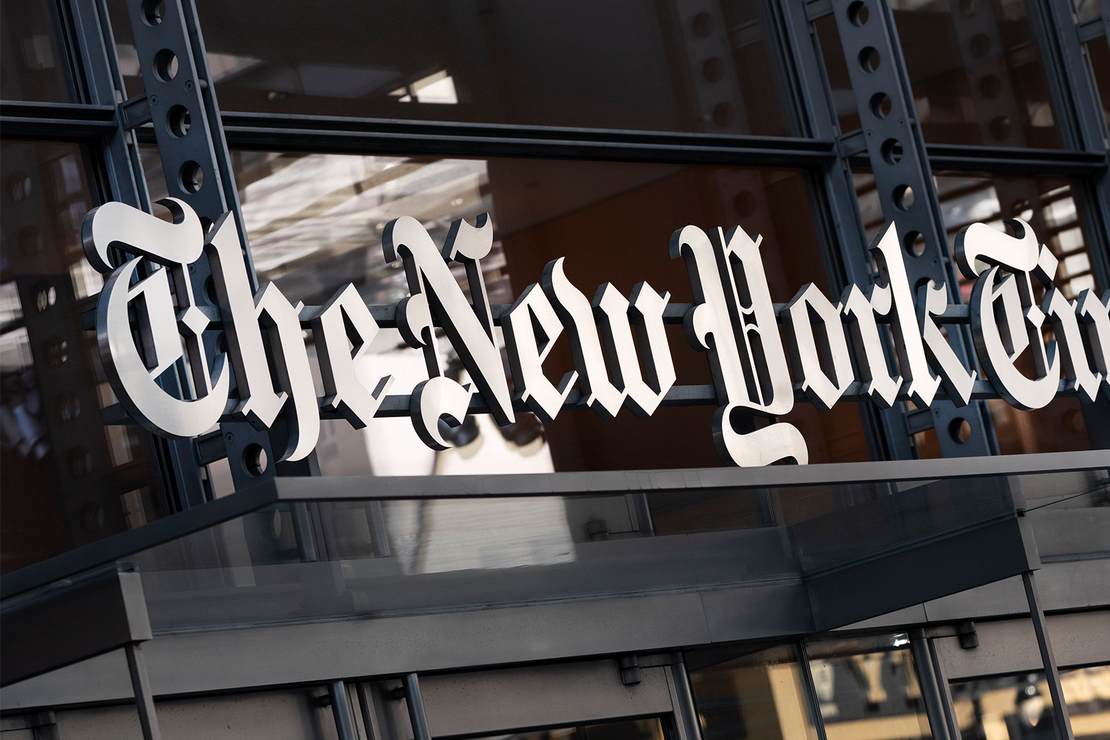
With each new series of Twitter Files that are released, not only are we learning more and more about the old regime’s suppression tactics and how they worked in part at the behest of Democrat lawmakers and campaign officials, but also the one-sided inner-workings of the Twitter machine that we either already suspected or were made aware of through Project Veritas exposés and the like have been further confirmed.
But though Elon Musk being at the helm of the Twitter ship is already proving to be a boon to transparency and open dialogue, the Usual Suspects in the press continue to do just the opposite because of course there are still Democrats and their affiliated far-left special interest groups to shield from scrutiny and criticism, and no one does that better than the left-wing apologists in the mainstream media.
Case in point, the New York Times, which in spite of their pseudo-“strike” Thursday still had so-called reporters in place this week to pen articles on how prominent public figures using triggering terms like “groomers” are supposedly endangering the LGBTQ community or something.
Christina Pushaw, a former spokeswoman for Florida Gov. Ron DeSantis who later was head of rapid response on his 2022 reelection campaign team, shared a message she received from the NYT’s Maggie Astor requesting comment on this very issue, citing so-called “extremism experts” to back up her supposed point about the alleged dangers of such rhetoric:
This is one of the New York Times activists going “on strike” tomorrow. Do you think anyone will notice? pic.twitter.com/qVMOhCv3Q3
— Christina Pushaw 🐊 🇺🇸 (@ChristinaPushaw) December 8, 2022
What the heck is an “extremism expert” anyway? Is that the same thing as an “online safety expert”? Independent journalist Glenn Greenwald explored this new “experts” front in the media’s ideological-driven war on open dialogue in the must-watch video below:
This demented media meltdown has dragged into the light one of the newest media scams: they invent fake credentials (“disinformation researcher,” “online safety expert”) and then bestow them on their friends to masquerade their politicized agenda as scientific and data-driven. pic.twitter.com/QeOgidNai4
— Glenn Greenwald (@ggreenwald) November 26, 2022
That is exactly what is happening here, and it’s a grotesque but intentional fine-tuning of what we saw during the coronavirus pandemic, where Big Tech and Big Media repeatedly cited “medical experts” (especially those at the CDC) as the primary rationale behind their deliberately suppressive policies when it came to the expression of/portrayal of dissenting viewpoints on the origins of COVID-19, how the virus was said to spread, mask-wearing, social distancing, and vaccines – to name a few examples.
READ RELATED: The One We've Been Waiting For: Twitter Files on COVID-19 Drops
As we knew then and which was reaffirmed later, it was right to question the constantly-changing advice and recommendations we were given from those “experts” at the time.
Except in this case, the “experts” cited are even more suspect. With the medical experts there were at least some established credentials (on paper, anyway). But how does one become an “online safety expert” or “disinformation expert”? As Greenwald said, these are largely made-up titles designed to give the wearers more legitimacy in the eyes of the readers/viewers.
This tactic also dovetails, I should note, with another emerging one we’ve seen from the media where they tell us that criticism of public figures and other prominent, outspoken people – shining a lot on their own words and actions – “puts them in harm’s way.”
Exhibit A:
Elon’s team is just creating new Main Characters for Fox News to accuse of treason by implying they did some sort of high crime but never actually saying what the crime is.
This is about creating pariahs to launch a mob against in order to, ironically, suppress their speech. https://t.co/OfcOUpvv7S
— Ben Collins (@oneunderscore__) December 6, 2022
Remember the good old days where journalists implicitly understood that questioning authority (including former DOJ/FBI officials like Jim Baker) was not just part of the job description but was supposed to be baked into their DNA? Sadly, those days are long gone.
Trending on Redstate Video
Source:






